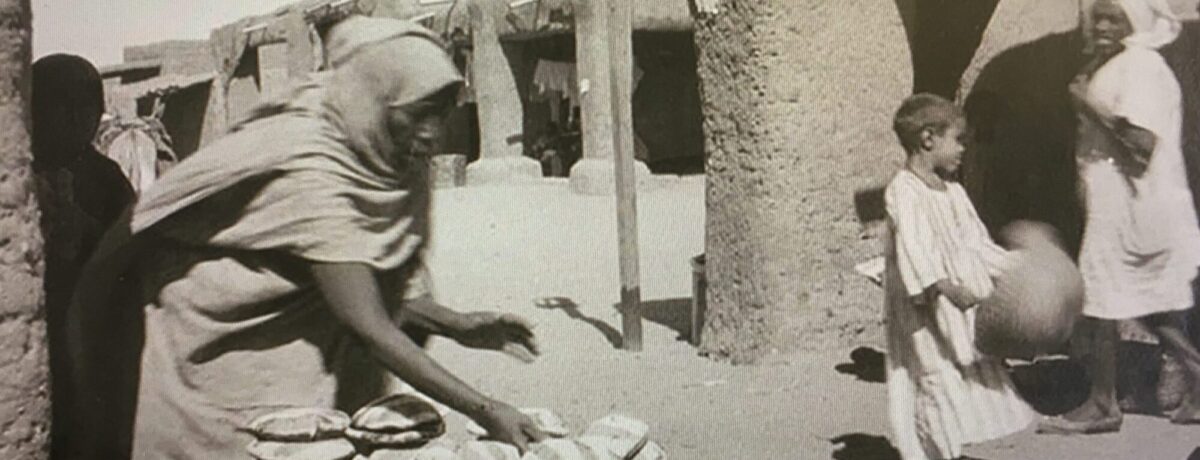Women at Work: For a comparative history of African female urban professions (Sudan, Ethiopia, Tanzania and Ghana), 1919-1970 (WomatWork)

WomatWork (ERC Consolidator grant n. 101045774a) is the first comparative investigation of the history of female popular professionals in the African continent. It studies the history of urban popular female professionals in four African countries – Ghana, Sudan, Ethiopia and Tanzania – chosen for their comparative potential, throughout fifty momentous years, from the end of the First World War to the transition to one-party governments in the 1960s.
It starts from the realization that the labour pattern of female popular urban professions as birth attendants, beauticians, market vendors, artisans and so on have historically presented a number of fascinating and unsettling characteristics, very different from those of male salaried labour. One example is the notion of a fixed price for a certain service. In the case of many of such professions, compensations were never fixed, but were determined by the customer’s economic situation and status.
According to the existing literature on African labour, while the colonial states hired generally men, women worked in a plethora of self-employed and unwaged professions, outside the colonial gaze. This sexual division of labour hindered for long time the recognition of the role of women in colonial economies, and this until an important strand of feminist Marxist scholarship (influenced by the works of Ester Boserup) managed to demonstrate that female labour was not outside colonial relations of productions, but quintessential to it.
A limit to this scholarship was that it analysed the history of female labour through macro-categories (like peasants versus urban female workers), and tended to depict women as victims of exploitative labour relations. Without overlooking this dimension, to me seeing work only as exploitation prevents us from understanding it as an existential and social phenomenon. In my project, I want to cast light on how having a certain profession impacted the lives of non-elite urban women, what work meant for them.
So, to sum up, the objectives of this project are:
1. Chart the specificities of female urban professions and their change over time
2. Study the existential and social dimension of female labour,
But how to achieve such ambitious objectives if the working hands of women were invisible? This project is based on creative methodologies used to try to overcome the problem of the invisibility of female workers in official documents by weaving together unconventional set of sources.
The idea is to start from photographic sources. Over the years, doing research in several national, colonial and missionary archives, I observed that pictures of female workers abounds in some collections, in contrast to the scarcity of textual sources directly describing them. Pictures of women at work will be surveyed and analysed, and will provide various information such as the multiplicity of urban professions, or the places where women worked. In some cases, even their names are kept.
Secondly: oral accounts. Starting from clues grasped from photographs, oral accounts of female professionals and their families will be collected through extensive fieldwork.
Finally, the vernacular press: In connection to the rise of nationalism, the press of the four countries often debated about the national role of female popular workers. These sources are to be read along and against oral accounts and photographs.
These sets of sources have also crossed with other grey and miscellaneous literature, as ILO reports, census data, missionary parish records, urban plans, and so on.
One final pillar of the project is the involvement of African institutions and junior and senior African scholars through a number of actions, including
- the co-production of knowledge through systematic research and joint publication projects
- the sharing of research benefits through a focus on training
- the fostering of local research by supporting projects on the history of women at work
In this way, this project will strive for a more democratic, more inclusive history, both for its content and for its means.
Partners:
- CNRS, Paris (France)
- Università di Bologna (Italie)
- École des hautes études en sciences sociales, Paris (France)
- Université de Paris 1 Panthéon Sorbonne (France)
- Institut Français de Recherche en Afrique – Nigeria
- Institut Français de Recherche en Afrique – Kenya
- Centre for Economic, Legal and Social Studies CEDEJ – Khartoum (Soudan)
Principal Investigators:
- Elena Vezzadini, CNRS, Paris
- Karin Pallaver, Université de Bologne
- Anne Hugon, Paris 1 Panthéon-Sorbonne
- Akosua Adomako Ampofo, Université du Ghana
- Cyrelene Amoah-Boampong, Université du Ghana

Social Media
Mailing List